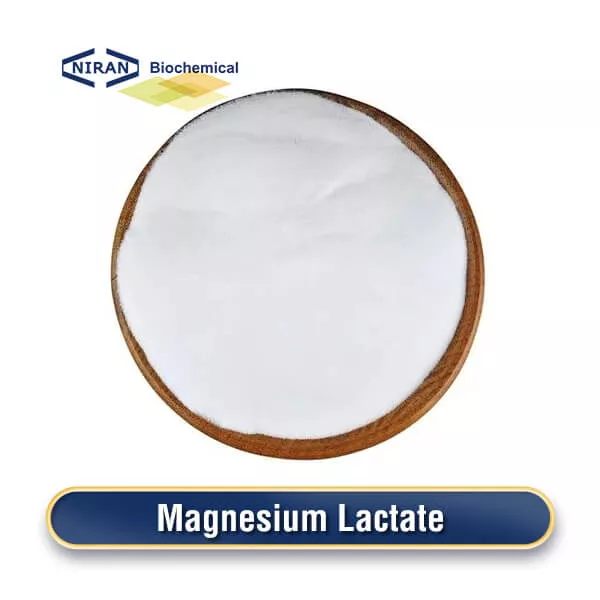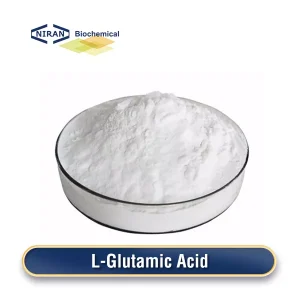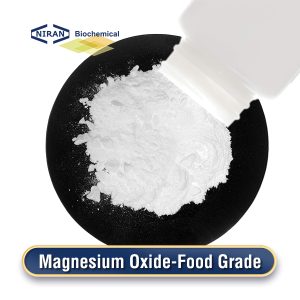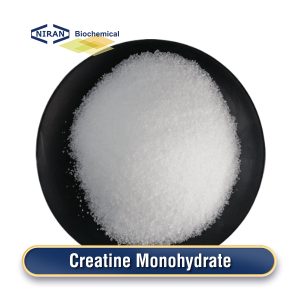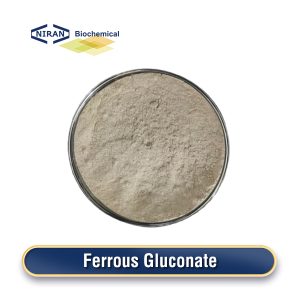What Is Magnesium Lactate?
Magnesium lactate is an excellent and economical magnesium organic enhancer. It is white to cream-colored crystalline powder or granules and odorless. It is easily soluble in hot water and is widely used in food, beverages, dairy products, flour, nutrient solution and pharmaceuticals.
There are two main preparation processes for magnesium lactate:
- Reaction of magnesium hydroxide with lactic acid: This method is to mix magnesium hydroxide with lactic acid under appropriate reaction conditions and neutralize to produce magnesium lactate. The pH value needs to be controlled during the reaction to optimize the yield and product quality.After the reaction, the magnesium lactate exists in a crystalline form. The crystallization is promoted by cooling or dilution, and filtered or centrifuged, and finally purified and dried to obtain food-grade magnesium lactate. This method is simple to operate, the raw materials are easily available, and it is suitable for large-scale production.
- Reaction of magnesium chloride with lactic acid: In this method, magnesium chloride is dissolved in water, and then lactic acid solution is gradually added to produce magnesium lactate.
To avoid over-acidification during the reaction, the pH level must be maintained. The generated magnesium lactate is precipitated by crystallization, filtered, centrifuged and other separation steps, and finally purified and dried. Magnesium lactate can be produced industrially using this inexpensive, versatile raw material technique.
Recommended Dosage:
| Food name | Maximum usage(g/kg) |
| Sports drinks | 1.0 – 3.0 g/kg |
| Confectionery | 0.5 – 2.0 g/kg |
| Bread | 0.5 – 1.0 g/kg |
| Soy sauce | 0.5 – 1.0 g/kg |
| Seasonings | 0.5 – 2.0 g/kg |
| Dairy products | 0.5 – 1.5 g/kg |
| Chocolate | 0.5 – 1.0 g/kg |
| Alcoholic beverages | 0.5 – 1.0 g/kg |
| Cheese | 0.5 – 1.0 g/kg |
| Ready-to-drink coffee: 0.5 – 1.0 g/kg | Spice mixtures: 0.5 – 2.0 g/kg |
| Sauces | 0.5 – 1.0 g/kg |
Magnesium Lactate Has A Wide Range Of Uses
- Magnesium lactate is an easily absorbed form of magnesium that can effectively supplement magnesium in the body. Magnesium is essential for many physiological functions of the human body, including bone health, cardiovascular function, nervous system function and muscle function.
- Magnesium lactate can be used as an acidity regulator in food to help adjust the pH value of food and improve the taste and stability of food.
- In some foods, the addition of magnesium lactate can improve the taste and texture of the product, making it more in line with consumers’ taste preferences, and can increase the nutritional value of food, especially in functional beverages and nutritional supplements.
- Magnesium is a mineral necessary for the normal functioning of the digestive system, helps relieve constipation and promotes intestinal health, and can help regulate heart rate and blood pressure, which has a positive effect on cardiovascular health.
User Asked Question:
Magnesium Lactate and Magnesium Carbonate have significant functional differences. Magnesium lactate is highly soluble in water and easily absorbed by the human body, so it is often used in nutritional supplements and functional foods to effectively supplement magnesium. It is not only used to increase magnesium levels in the body, but also as a food additive to adjust acidity and improve the taste and stability of food.
In contrast, magnesium carbonate has a lower solubility in water, resulting in lower absorption efficiency in the body. Although it can be used to supplement magnesium, larger doses are usually required to achieve the desired effect. Magnesium carbonate releases magnesium ions in the acid environment of the stomach, so it is also commonly used in pharmaceuticals as a gastric acid neutralizer to relieve the symptoms of excessive gastric acid.
The high bioavailability of magnesium lactate makes it effective in long-term supplementation and suitable for various nutritional supplements and food applications. Due to its fewer side effects, magnesium lactate is the preferred ingredient in many functional foods and health products.
Magnesium carbonate is mainly used in specific medical and industrial applications and may cause gastrointestinal discomfort, such as diarrhea, so it is necessary to pay attention to the dosage and in vivo reactions. It has a wide range of uses in industry, such as in the preparation of refractory materials and paper.

